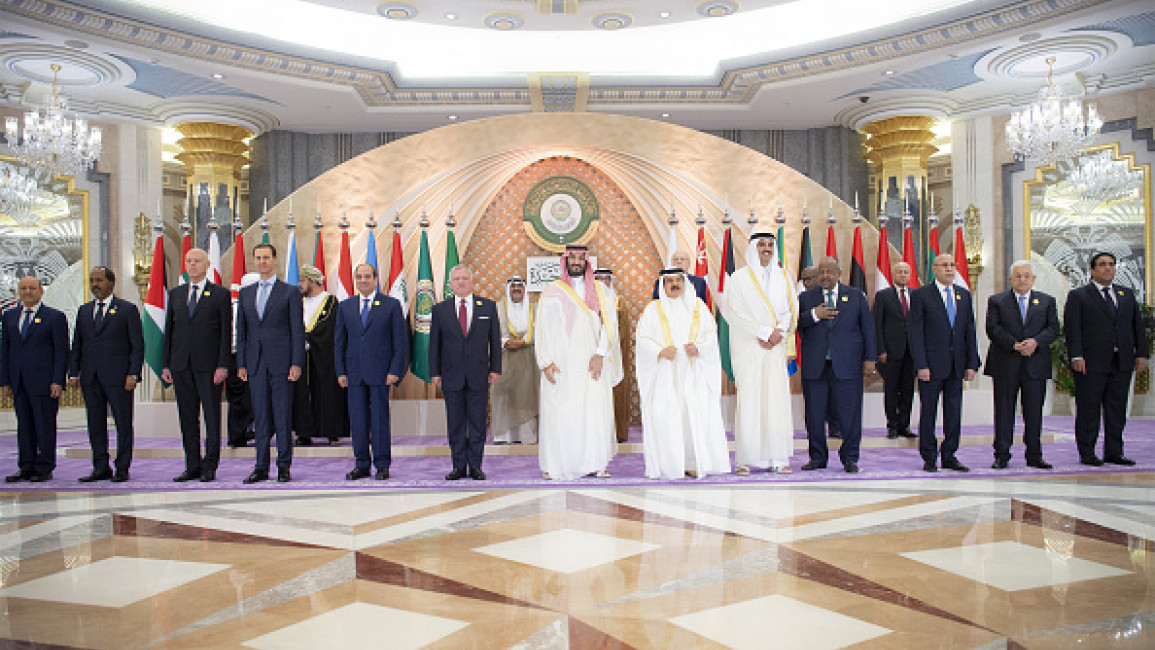Arab League affirms Palestinian cause remains central Arab issue
The Arab League's 32nd summit concluded on Friday by reaffirming that the Palestinian cause remains the central issue for Arab nations and a key factor for regional stability, according to a statement issued by the body which met in the Saudi port city of Jeddah on 19 May.
The summit's closing statement, dubbed "the Jeddah Declaration", strongly condemned Israeli violations against Palestinians.
"We reaffirm the centrality of the Palestinian cause to our nations as one of the main factors for stability in the region," the statement said. "We strongly condemn the practices and violations targeting Palestinians in their lives, properties and overall existence."
The body also reaffirmed its support for a two-state solution to the Palestinian issue.
"We emphasise the importance of intensifying efforts to achieve a comprehensive and just settlement of the Palestinian issue, creating a genuine prospect for peace based on the two-state solution," it said, adding that it supported the Arab Peace Initiative and international resolutions on the issue.
"[These] ensure the establishment of an independent, sovereign Palestinian state on the 1967 borders with East Jerusalem as its capital," it said, calling on the international community to assume its responsibilities in ending the occupation and stopping repeated violations that undermine peace efforts.
"We stress the necessity of continuing efforts to protect the occupied city of Jerusalem and its sanctities against condemned attempts by the occupier to alter its demographics, identity, and historical and legal status," it said, in reference to the continued building of illegal Israeli settlements in the occupied West Bank in violation of international resolutions.
The body also stressed its support for "the Hashemite custodianship, which historically protects Islamic and Christian holy sites, as well as the administration of Jerusalem's endowments and Al-Aqsa Mosque affairs under the Jordanian Ministry of Awqaf as the exclusive authority".
The statement came amid a push by the US for a Saudi-Israeli normalisation deal, which Riyadh had rejected insisting it will only normalise after a two-state solution is reached.
Some Arab states, including the UAE, normalised with Israel two years ago under the so-called Abraham Accords, which the US sought to expand with the signing on of other countries.
Instead, many Arab states had expressed severe discontent with Benjamin Netanyahu's new hardline government over its far-right and antagonistic policies toward the Palestinians.


![President Pezeshkian has denounced Israel's attacks on Lebanon [Getty]](/sites/default/files/styles/image_684x385/public/2173482924.jpeg?h=a5f2f23a&itok=q3evVtko)



 Follow the Middle East's top stories in English at The New Arab on Google News
Follow the Middle East's top stories in English at The New Arab on Google News


